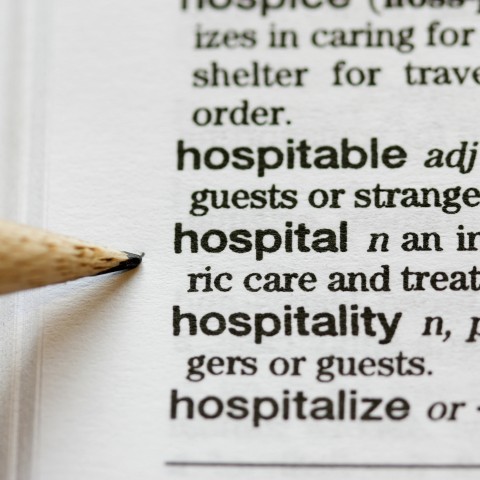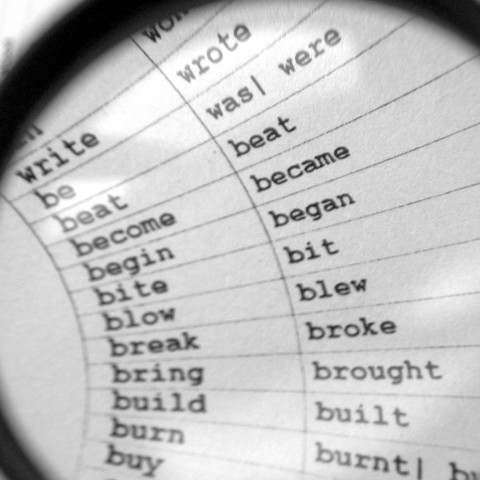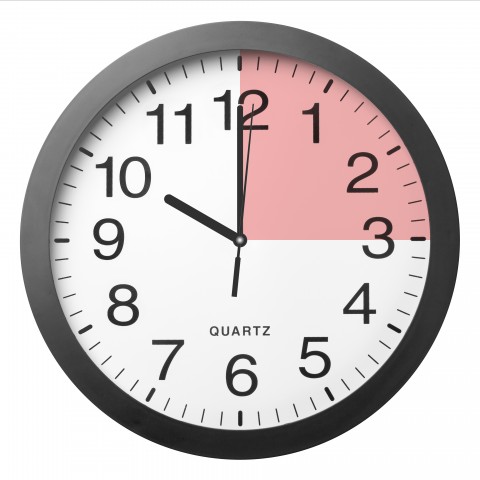
Assuming you’re on the verge of leveling up in your Indonesian studies, it’s time that you step up and learn some of the most useful intermediate Indonesian words. But before we dive in, some context:
Many language experts consider Indonesian to be the easiest spoken language for English speakers to learn. It’s a simplified language, and learning it is more fun than it is a chore.
La coca-cola is feminine in Spanish.
Le café is masculine in French.
Das Bier is neuter in German.
But in Indonesian, it’s all the same.
So whether you’re ordering a coca-cola, kopi, or a bira, it all falls under the same blanket.
Surprised?
You might be even more surprised to learn that there is no plural in Indonesian. For example, one woman is satu wanita and two women are dua wanita. As you can see, the word wanita (“woman”) does not change regardless of whether we’re talking about a single woman or multiple women.
Moreover, there is no conjugation in Indonesian. This means the verb stays constant, and only the pronouns preceding it change to indicate person and number.
That’s Indonesian for you. Extremely simple rules and no new script to learn (like there would be if you were learning almost any other Asian language). In other words, you won’t have to spend months learning new characters or sounds.
All of these reasons and more make starting out with Indonesian very easy. This means that you’ll be ready to move into the intermediate phase much faster than you would when learning most other languages.
But just like with any other language, vocabulary is paramount for getting from one level to another.
That’s where this article comes in.
We’ve compiled the most important intermediate Indonesian words in different categories, covering everything from nouns and verbs to conjunctions, auxiliary verbs, and particles. In addition, we’ve included parallel English translations for each word.
Without further ado, let’s get right into it.
 Table of Contents
Table of Contents
- Large Numbers
- Nouns
- Verbs
- Adjectives
- Adverbs
- Prepositions
- Conjunctions
- Auxiliary Verbs and Particles
- Conclusion
1. Large Numbers

| English Translation | Indonesian | Number |
| Ten | Sepuluh | 10 |
| Eleven | Sebelas | 11 |
| Twelve | Duabelas | 12 |
| Thirteen | Tigabelas | 13 |
| Fourteen | Empat belas | 14 |
| Fifteen | Limabelas | 15 |
| Sixteen | Enambelas | 16 |
| Seventeen | Tujuh belas | 17 |
| Eighteen | Delapan belas | 18 |
| Nineteen | Sembilan belas | 19 |
| Twenty | Dua puluh | 20 |
| Thirty | Tigapuluh | 30 |
| Forty | Empat puluh | 40 |
| Fifty | Lima puluh | 50 |
| Sixty | Enam puluh | 60 |
| Seventy | Tujuh puluh | 70 |
| Eighty | Delapan puluh | 80 |
| Ninety | Sembilan puluh | 90 |
| A hundred | Seratus | 100 |
| A thousand | Seribu | 1,000 |
| Ten thousand | Sepuluh ribu | 10,000 |
| A hundred thousand | Seratus ribu | 100,000 |
| A million | Satu juta | 1,000,000 |
2. Nouns

Because nouns make up such a huge chunk of any language, picking up more nouns should be a priority for language learners at any level. To get you started, we’ve listed for you the most practical intermediate Indonesian nouns in a variety of categories. You can begin practicing these words right away to immediately open up new conversation opportunities!
Time
| English Translation | Indonesian |
| Century | Abad |
| Morning | Pagi |
| Evening | Malam |
| Quarter | Perempat |
| Semester | Semester |
Places
| English Translation | Indonesian |
| Region | Wilayah |
| Department | Departemen |
| Village | Desa |
| Park | Taman |
| Bank | Bank |
| Pharmacy | Farmasi |
| Hospital | Rumah Sakit |
| Bakery | Toko roti |
| Cliff | Jurang |
| Beach | Pantai |
| Island | Pulau |
| Hill | Bukit |
Technology
| English Translation | Indonesian |
| Screen | Layar |
| Keyboard | Papan ketik |
| Mouse | Mouse |
| Tablet | Tablet |
| TV | Televisi |
| Console | Konsol |
| Charger | Pengisi daya |
| Website | Situs web |
| Account | Akun |
| Password | Kata sandi |
| File | Berkas |
| Folder | Map |
| Software | Perangkat lunak |
| Technology | Teknologi |
Home
| English Translation | Indonesian |
| Room | Kamar |
| Floor | Lantai |
| Living room | Ruang keluarga |
| Bathroom | Kamar mandi |
| Fridge | Lemari es |
| Wardrobe | Lemari pakaian |
City & Transportation
| English Translation | Indonesian |
| Suburbs | Pinggiran kota |
| Neighborhood | Lingkungan |
| Highway | Jalan raya |
| Alley | Gang |
| Roundabout | Bundaran |
| Crossroad | Persimpangan jalan |
People
| English Translation | Indonesian |
| Uncle | Paman |
| Aunt | Bibi |
| Grandson | Cucu laki-laki |
| Granddaughter | Cucu perempuan |
| Child | Anak |
| Grandfather | Kakek |
| Grandmother | Nenek |
Body Parts
| English Translation | Indonesian |
| Finger | Jari |
| Back | Punggung |
| Belly | Perut |
| Breast | Payudara |
| Shoulder | Bahu |
| Leg | Kaki |
| Thigh | Paha |
| Butt | Pantat |
| Foot | Kaki |
| Cheek | Pipi |
| Chin | Dagu |
| Forehead | Dahi |
Food
| English Translation | Indonesian |
| Knife | Pisau |
| Fork | Garpu |
| Spoon | Sendok |
| Wine | Anggur |
| Dish | Hidangan |
| Appetizer | Hidangan pembuka |
| Dessert | Pencuci mulut |
| Drink | Minum |
| Coffee | Kopi |
Work & Studies
| English Translation | Indonesian |
| Nurse | Perawat |
| Lawyer | Pengacara |
| Waiter | Pelayan |
| Salesman | Pedagang |
| Lecturer | Dosen |
| Judge | Hakim |
| Teacher | Guru |
Clothes
| English Translation | Indonesian |
| Pants | Celana |
| Sweater | Sweater |
| T-shirt | Kaos |
| Shirt | Kemeja |
| Coat | Mantel |
| Sock | Kaus kaki |
| Shoe | Sepatu |
| Dress | Gaun |
| Hat | Topi |
3. Verbs

At the beginner stage, you learned a number of basic Indonesian verbs to get your point across. Now, you’ll want to focus on picking up some more advanced verbs that can help you better express yourself and add flavor to your conversations.
| Indonesian | English Translation |
| Melayani | To serve |
| Pergi | To leave |
| Memperbolehkan | To allow |
| Mengirim | To send |
| Menerima | To receive |
| Hidup | To live |
| Menelepon | To call (via phone) |
| Mengingatkan | To remind |
| Memperkenalkan | To introduce |
| Menerima | To accept |
| Menolak | To refuse |
| Bertindak | To act |
| Bermain | To play |
| Mengenali | To recognize |
| Memilih | To choose |
| Menyentuh | To touch |
| Menjelaskan | To explain |
| Bangun | To get up |
| Membuka | To open |
| Menutup | To close |
| Menang | To win |
| Kalah | To lose |
| Ada | To exist |
| Berhasil | To succeed |
| Mengganti | To change |
| Bekerja | To work |
| Belajar | To study |
| Tidur | To sleep |
| Berjalan | To walk |
| Mencoba | To try |
| Berhenti | To stop |
| Melanjutkan | To continue |
| Memasak | To cook |
| Tergolong | To belong |
| Mengambil risiko | To risk |
| Mempelajari | To learn |
| Bertemu | To meet |
| Membuat | To create |
| Mendapatkan | To get |
| Memasuki | To enter |
| Untuk keluar | To exit |
| Menawarkan | To offer |
| Membawa | To bring |
| Menggunakan | To use |
| Mencapai | To reach |
| Mempersiapkan | To prepare |
| Menambahkan | To add |
| Membayar | To pay |
| Mempertimbangkan | To consider |
| Untuk membeli | To buy |
| Untuk mendorong | To push |
| Untuk berbelanja | To shop |
| Untuk bepergian | To travel |
4. Adjectives

Our next set of intermediate Indonesian words is adjectives, or words that describe nouns. Keep in mind that the words listed below are only equivalents of English adjectives; some of them may be translated in Indonesian as adverbs or nouns.
| Indonesian | English Translation |
| Mengagumkan | Awesome |
| Mengerikan | Horrible |
| Aneh | Weird |
| Rumit | Complicated |
| Tebal | Thick |
| Tipis | Thin |
| Dekat | Near |
| Jauh | Far |
| Sempit | Narrow |
| Lebar | Wide |
| Lembut | Soft |
| Keras | Hard |
| Penuh | Full |
| Kosong | Empty |
| Cahaya | Light |
| Berat | Heavy |
| Unik | Unique |
| Khusus | Special |
| Baru | New |
| Lama | Old |
| Miskin | Poor |
| Kaya | Rich |
| Bersih | Clean |
| Kotor | Dirty |
| Lemah | Weak |
| Kuat | Strong |
| Ramping | Slim |
| Lemak | Fat |
| Imut | Cute |
| Kejam | Mean |
| Lucu | Funny |
| Bagus | Nice |
| Senang | Happy |
| Sedih | Sad |
| Diam | Quiet |
| Bergairah | Excited |
| Berbahaya | Dangerous |
| Membosankan | Boring |
| Pedas | Spicy |
| Selanjutnya | Next |
| Sebelumnya | Previous |
| Kedua dari terakhir | Second-to-last |
| Jeruk | Orange |
| Merah Jambu | Pink |
| Abu-abu | Gray |
| Ungu | Purple |
| Magenta | Magenta |
| Pirus | Turquoise |
5. Adverbs
Adverbs are words that provide us with additional information about a verb, an adjective, or even another adverb. You might not have used these very often at the beginner level, but you’ll find them useful as you approach the intermediate level in Indonesian. Below, you’ll find several adverbs you should become familiar with at this point in your language learning journey.
When
| Indonesian | English Translation |
| Sudah | Already |
| Dahulu kala | A long time ago |
| Sekarang | Now |
| Lagi | Again |
| Akhirnya | At last |
| Kemudian | Then |
| Setelah itu | Thereafter |
How Often
| Indonesian | English Translation |
| Terkadang | Sometimes |
| Jarang | Rarely |
| Biasanya | Usually |
| Umumnya | Generally |
| Sepanjang waktu | All the time |
Where
| English Translation | Indonesian |
| Nowhere | Tidak di mana-mana |
| Somewhere | Di suatu tempat |
| Elsewhere | Di tempat lain |
| Up | Naik |
| Down | Turun |
| Over | Atas |
| Under | Di bawah |
| Far | Jauh |
| Close | Dekat |
How
| English Translation | Indonesian |
| Softly | Dengan lembut |
| Slowly | Perlahan |
| Quickly | Segera |
| Calmly | Dengan tenang |
| Easily | Dengan mudah |
| Luckily | Untunglah |
| Simply | Secara sederhana |
How Much
| Indonesian | English Translation |
| Cukup | Enough |
| Terutama | Especially |
| Hampir | Almost |
| Berapa banyak | How much |
| Sangat banyak | So many |
| Sangat sedikit | So few |
| Tentang | About |
6. Prepositions
Time

| English Translation | Indonesian |
| Before | Sebelum |
| After | Setelah |
Space
| English Translation | Indonesian |
| Next to | Di samping |
| To the right | Ke kanan |
| To the left | Ke kiri |
| At | Di |
| In front of | Di depan |
| Behind | Di belakang |
| Under | Di bawah |
| Over | Atas |
Other
| Indonesian | English Translation |
| Antara | Between |
| Terima kasih kepada | Thanks to |
| Meskipun | Despite |
| Tanpa | Without |
| Dengan | With |
7. Conjunctions
As you learn to write and speak Indonesian at a more intermediate level, having some practical conjunctions up your sleeve will come in handy. We introduced a few basic conjunctions in our beginner words article, so now we’ll show you a few more advanced ones.
| Indonesian | English Translation |
| Baik…maupun… | Neither…nor… |
| Jadi | So |
| Jika tidak | Otherwise |
| Karena | Since (as) |
| Ketika | When |
| Karena itu | Therefore |
8. Auxiliary Verbs and Particles
If you want to sound more like a native Indonesian speaker, one of the best things you can do is learn the most common auxiliary verbs and particles.
Auxiliary Verbs
| Indonesian | English Translation |
| Akan | Will / Going to |
| Ingin | Want |
| Mau | Want (informal) |
| Telah | Have / Had |
| Sudah | Have / Had |
| Pernah | Have |
| Masih | Still |
| Bisa | Can |
| Dapat | Can |
| Boleh | May |
| Harus | Must |
| Seperti | Like |
Particles
-kah
The Indonesian particle -kah is used in interrogative sentences.
Example:
Sepeda rumah atau mobilkah yang akan kamu jual?
“Will you put the house or the car up for sale?”
As you can see in the example above, the word mobil (“car”) is followed by -kah, which is used to ask a question when a choice can be made between two options.
It’s worth mentioning that -kah can also be used as a suffix (as opposed to a particle).
-lah
As opposed to -kah, -lah is used in declarative sentences. We use it to stress a certain word within a phrase.
Examples:
- Jelaslah kamu yang salah, dari apa yang kamu ceritakan.
“It is clear that you’re the one in the wrong, from your story.”
- Tempat itulah adalah tempat obat dijual.
“That place is where the drugs are sold.”
Just like with the previous particle, -lah can also be used as a suffix.
-tah
Of all the particles on our list, -tah (derived from the old Malay language) is probably used the least often in daily life.
The usage of -tah is similar to that of -kah, in the sense that it’s mostly used for interrogative sentences. It is used when the person asking the question doesn’t necessarily require a response or seek an answer.
Example:
Apatah artinya makanan tanpa teman?
“What is the meaning of food without company?”
-pun
The particle -pun is used to emphasize a certain word within a sentence. It’s mostly used to stress the word that follows it within a sentence. Please note that it could be written either separately or jointly with the word preceding it.
Example:
Aku pun akhirnya menyetujui keputusan tersebut.
“I do finally agree with the decision.”
9. Conclusion
Congrats on getting this far.
Feel like your Indonesian might need a bit more work? Try an effective learning program like IndonesianPod101.
Here, you can access parallel translated vocabulary for exactly your level, with the support of different features and optional access to an Indonesian language expert.
Signup is free, and no credit card is required.
Happy Indonesian learning!









